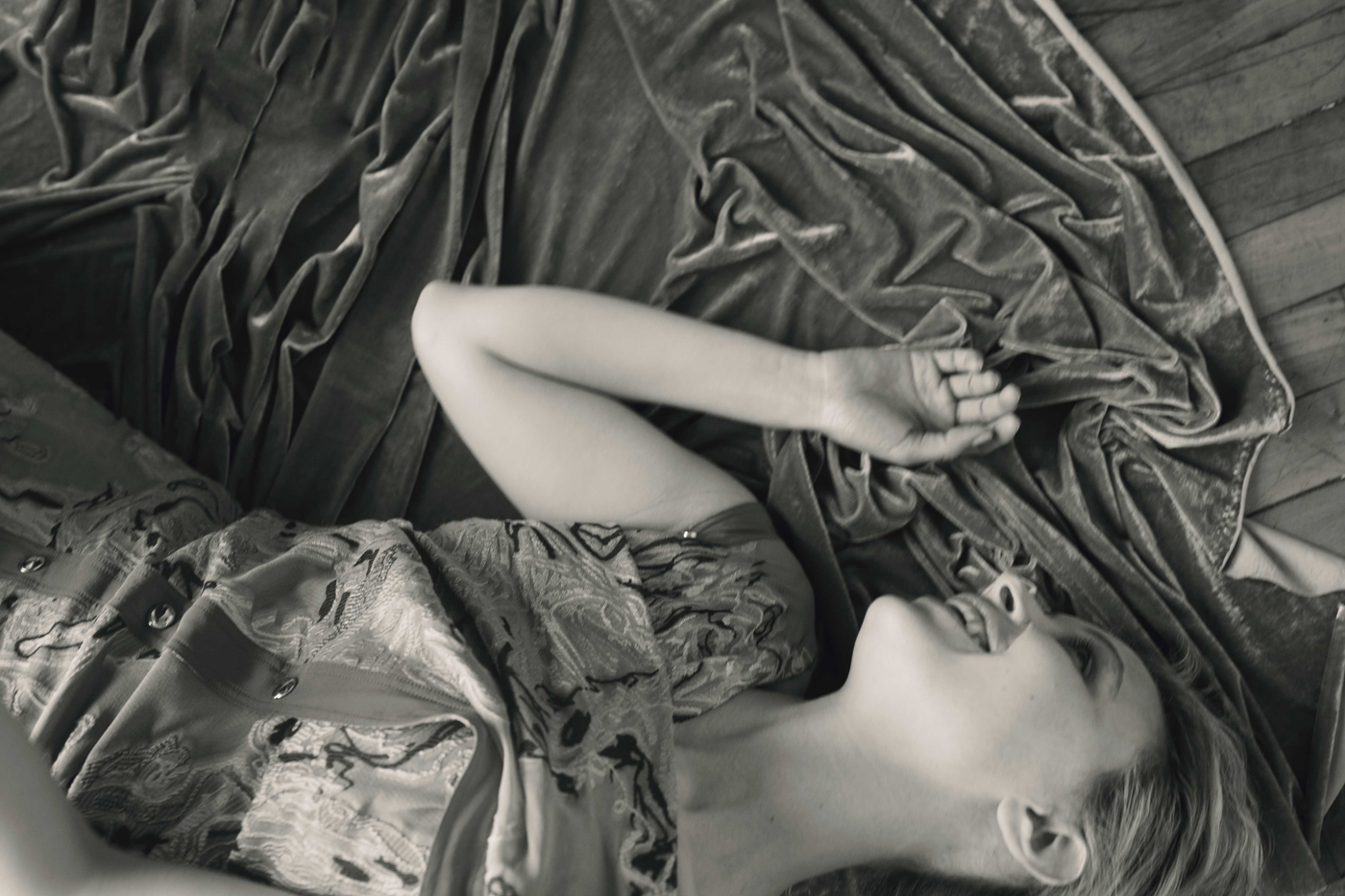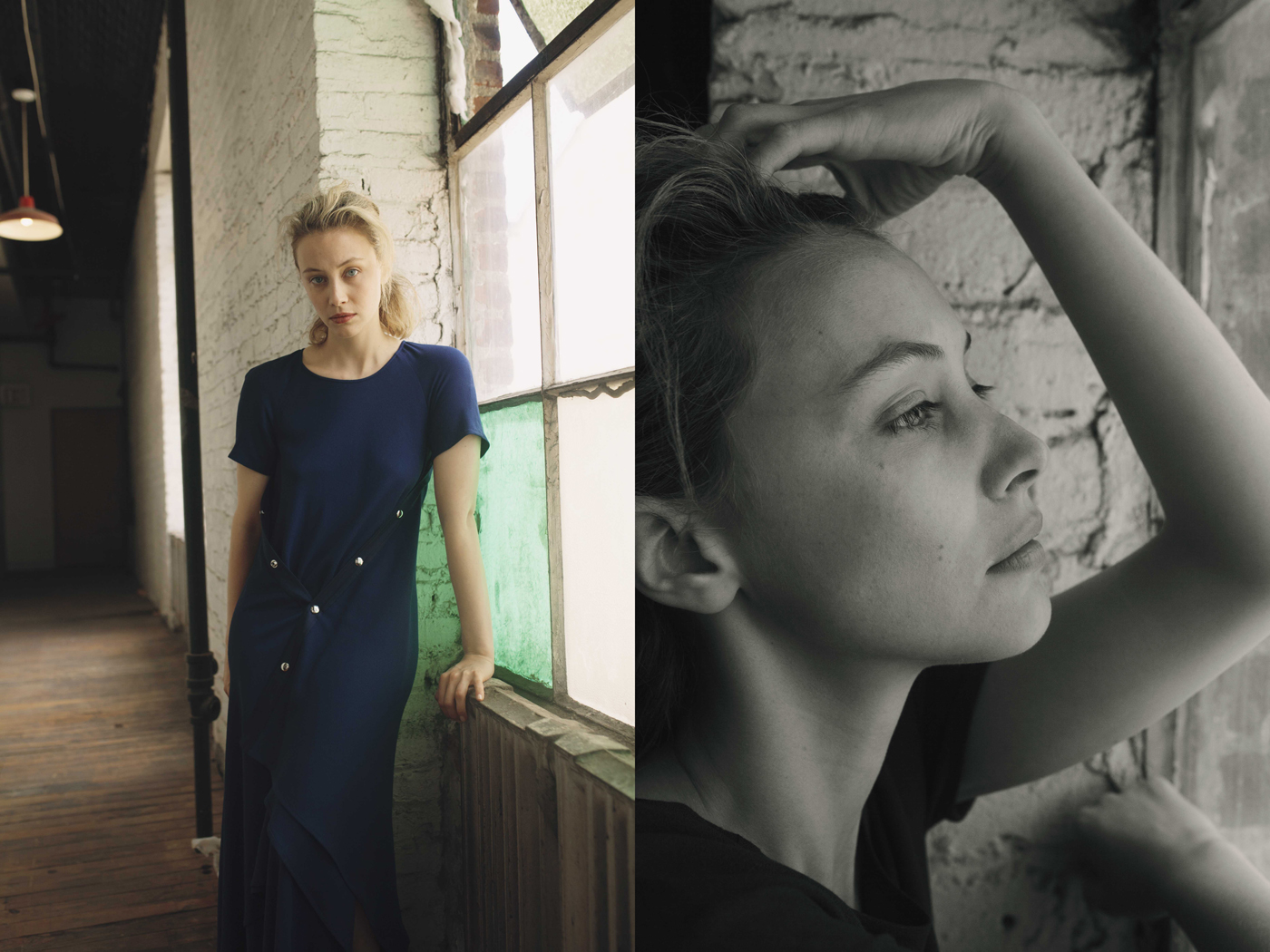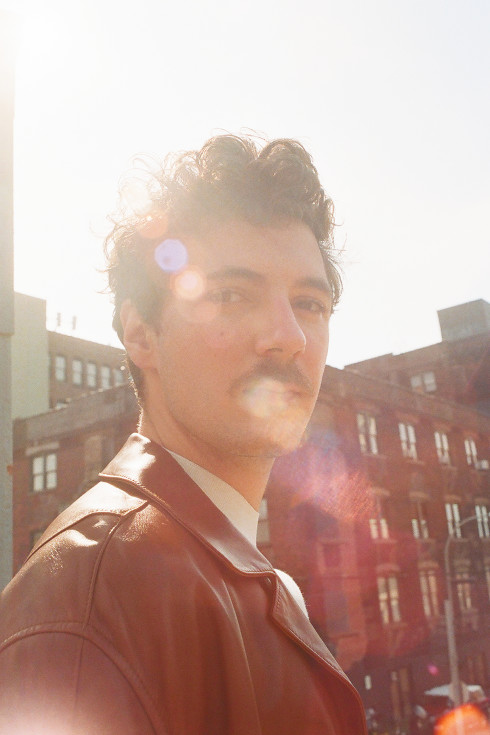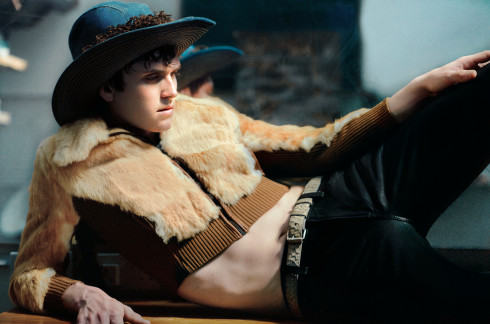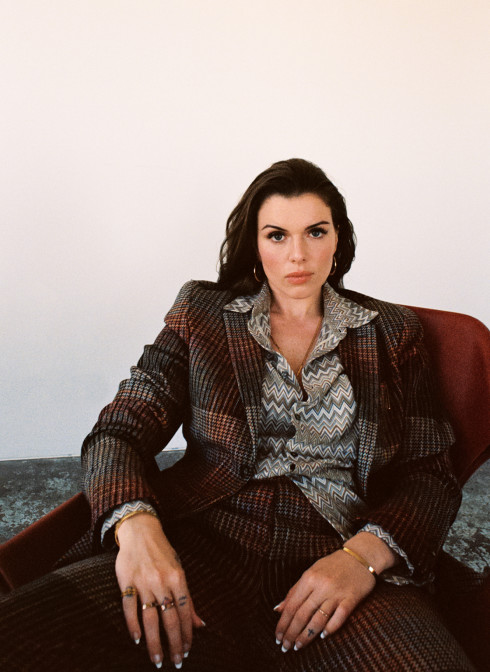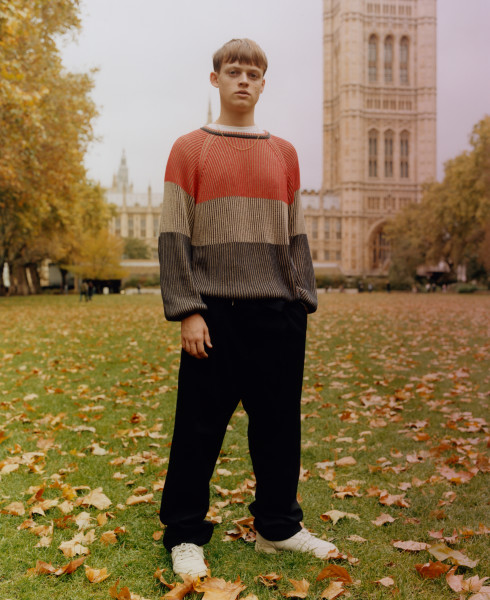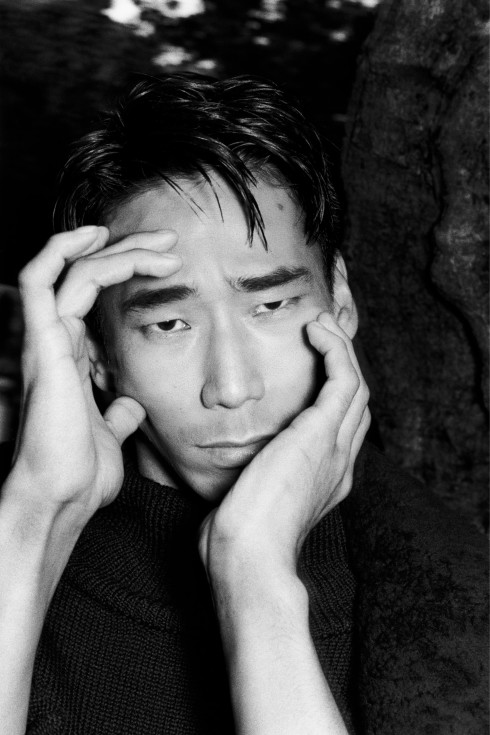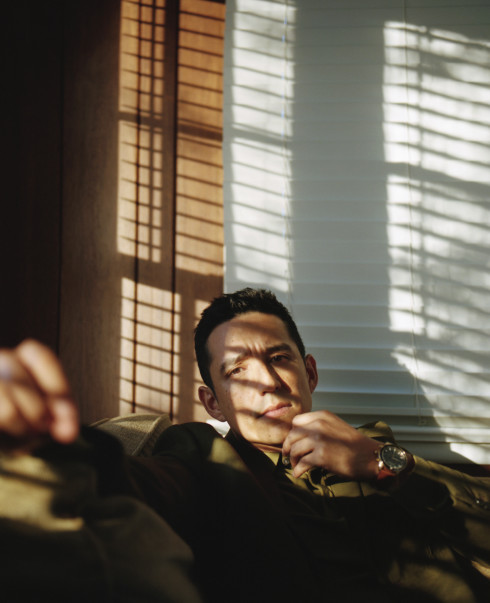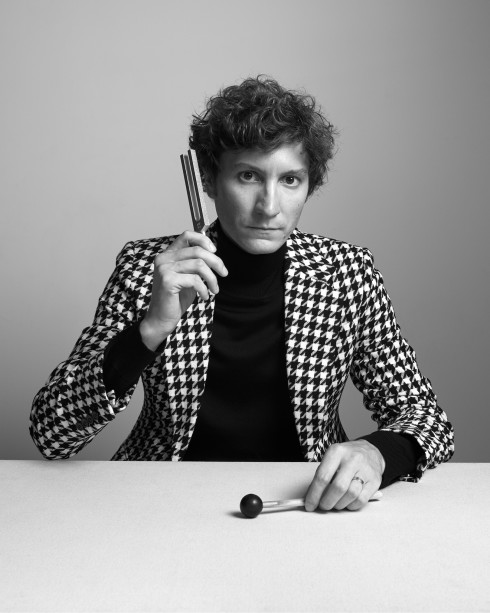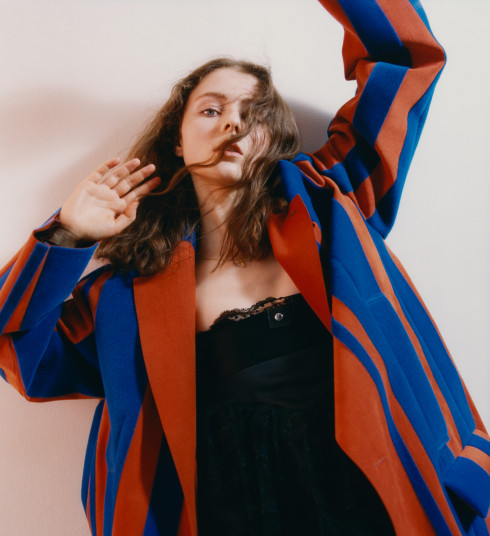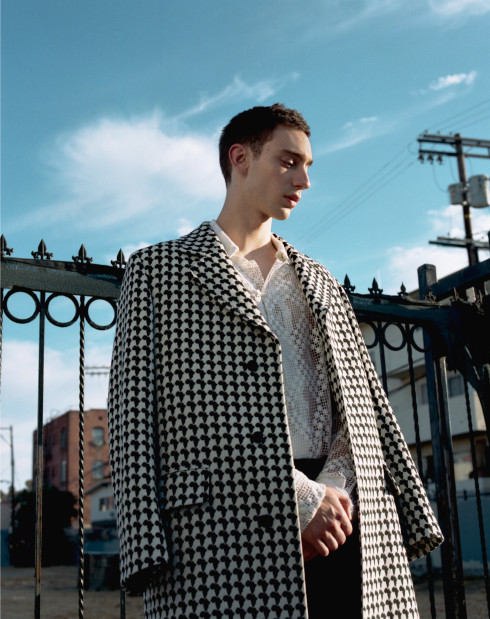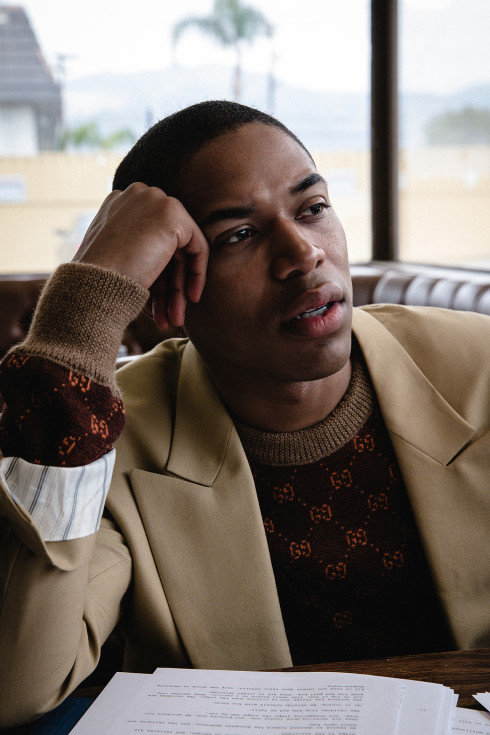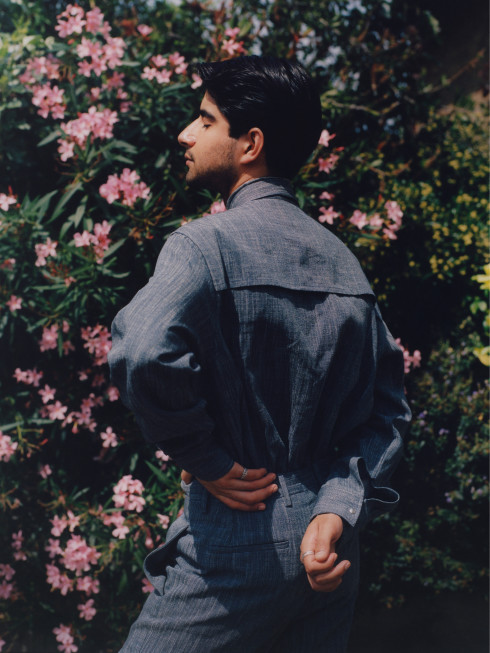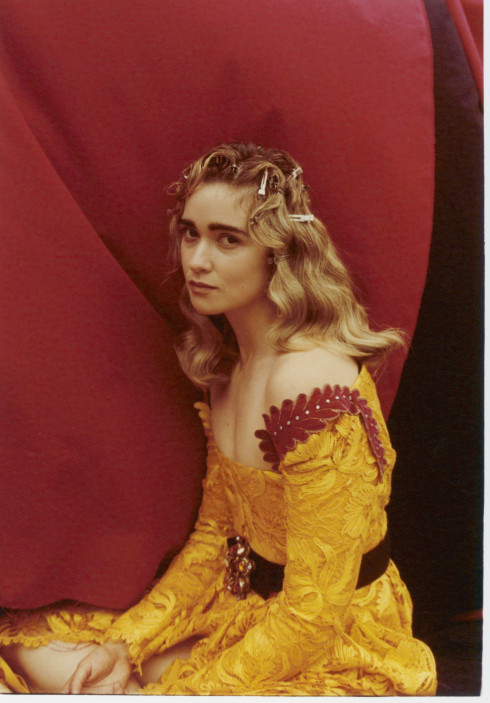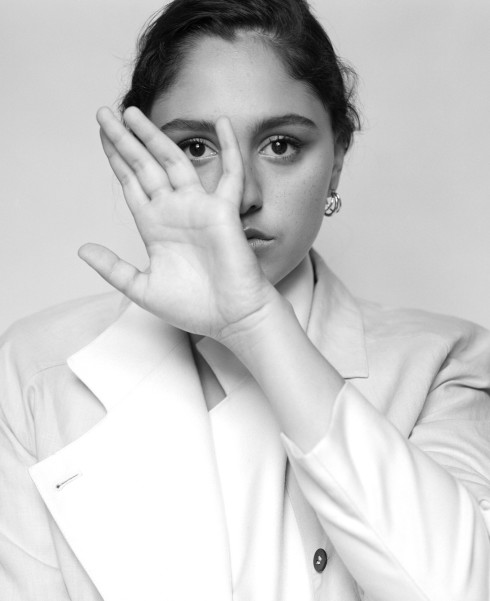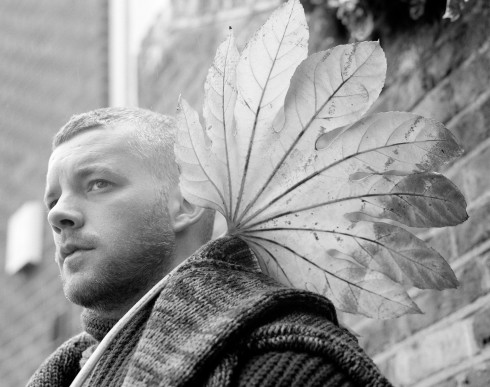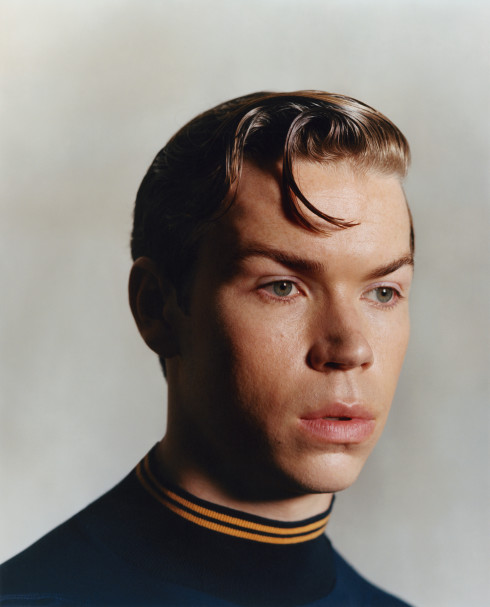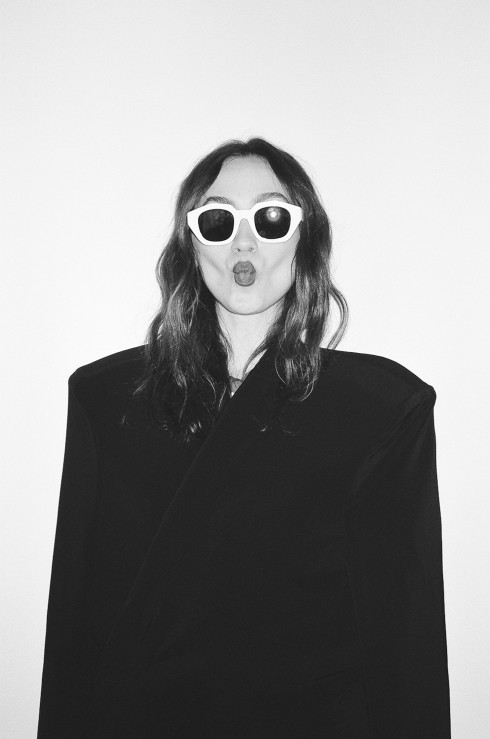
- By
- Edwina Hagon
- Photography by
- Rebekah Campbell
Styling by Alison Mazur. Hair by Nate Rosenkranz at Honey Artists. Makeup by Aya Komatsu at Bridge Artists. Stylist’s assistant: Chunjung Park.
SARAH GADON
Actors like Sarah Gadon have the ability to travel through time, skating back and forth through the years with a level of effortless authenticity that is nothing short of transcendent. Over the course of her two decades in front of the camera for the big screen and small, the Toronto-based actor has clocked some serious mileage. But despite her predilection for traversing time zones, genres, social classes, and dress codes, the thirty-year-old Gadon is a product of the now—a realist, she will tell you, and a longstanding fan of film who regards the medium as a portal through which to reevaluate the past from a twenty-first-century point of view. “I really like how cinema gives us this new perspective to take a look back on history and reclaim it from a different lens,” she says.
Her latest venture, the upcoming Netflix miniseries Alias Grace, is based on Margaret Atwood’s historical novel of the same name and was adapted by Canadian multi-hyphenate Sarah Polley. It sees Gadon journeying into unfamiliar territory to portray the show’s protagonist, the real-life Grace Marks, an Irish domestic servant who was convicted, perhaps wrongly, of the double murder of her employers in Canada in 1843.
“[Marks] was sensationalized and became kind of infamous at a really young age,” Gadon says of her troubled character. “With the press and the hysteria that surrounded the actual trial, it was almost as if her own identity was taken from her at that moment and she was blown up into this other being.”
In a time when history was, for the most part, being written by men, this female-led rendering of Marks’s story offers a gendered look back at what it meant to be a working-class girl in the Victorian age in Canada, what it meant to be part of an extremely raw colonial society, and what it meant to be fighting for your life in a patriarchal system of survival—a tenacious exploration of character and time that for Gadon played a major part in the script’s appeal. “When I read the piece, what I was most proud of and most interested in was this very nuanced and deep discussion about female identity,” she explains, “especially how female identity gets skewed by history in terms of its interpretation and its understanding.”
There are reasons, Gadon notes, that stepping into the shoes of the notorious Marks was no small undertaking. “It was exceptionally hard to get into that role because she is kind of purposefully an enigma in the novel. There are so many different versions of what happened and I think what makes the story so compelling is the ambiguity of it,” she says, adding that the deep emotional connection she felt with Marks presented various challenges of its own. “I was trying to crack Grace and it’s almost impossible, and I would become so ridden with anxiety that I would have to just go for a run because I was so filled up with all of her and everything that could have happened and everything I wanted to happen for her. Grace was a real person and I was really affected by her life and what happened to her. I don’t know if that’s the gift or the curse of a project like this.”
As much a physical role as an emotional one, Gadon’s portrayal of Marks shows not only a dogged determination to master a difficult character, but also a willingness to tangibly experience the gritty realities of life as a maid and prison inmate in the middle of the nineteenth century. “It was such an intense shoot because I had all these versions of her to keep in my head, but then on top of that [director] Mary [Harron] wanted me to do every housemaid’s chore for real, so I was milking cows and lugging buckets of water and pumping water and churning butter and sewing throughout the entire show,” Gadon recalls. “It was exhausting.”
As the dust settles on Alias Grace, Gadon reflects upon the path that has led her to where she is now, one that began with the precision and structure of ballet. “I am really happy that I came to acting through dance because of its discipline,” she says. “That work ethic was really ingrained in me through dance and that’s something that I really value as an actor.”
In many ways, Gadon’s years spent practicing dance can be credited for keeping the self-proclaimed “wild and precocious kid” firmly on track to become the dynamic and self-assured actor she has proven herself to be, graduating from childhood roles such as her first-ever television appearance as a missing child in the Canadian spy series La Femme Nikita at age eleven to tackling pivotal and complex character arcs like her depiction of Olivia Hutton, the troubled young love interest of Logan Lerman’s protagonist in James Shamus’s Indignation last year. Set in midcentury America at a small Ohio college, the film sees Gadon navigating a deeply unsettling narrative with unflinching grace and intuition, a cinematic triumph that solidified her stance as a formidable and captivating actor to watch.
Also last year, Gadon appeared alongside James Franco and George MacKay in the thriller 11.22.63 on Hulu. “You asked if I was a nostalgic person. I guess maybe I am because I was just really drawn to it,” says Gadon of the miniseries that sees the show’s lead, played by Franco, traveling back in time to the Sixties to embark on an unlikely mission to prevent Kennedy’s assassination while finding love with Gadon’s character, Sadie Dunhill, along the way. As an “outsider to American film culture and American culture in general,” Gadon’s involvement in 11.22.63 marked a firm entry into Hollywood’s exclusive club, a situation in which the Canadian actor is grateful to find herself. “At the time, I hadn’t really done a lot of American projects and it was something that I’d said to myself I really wanted to focus on,” she laughs. “And as soon as I made that decision within myself it was like, ‘Here’s a project based on a Stephen King novel, produced by J.J. Abrams, starring James Franco.’ It was like the most American job that could possibly come my way.”
Upon further reflection, Gadon’s thoughts fall fondly on the people she has met along her path. Namely, Canadian filmmaker David Cronenberg, with whom Gadon forged a bond dating back to her days studying film theory and criticism at the University of Toronto. “I decided to do my degree part-time and really start acting full-time, which was great because that was when I met David Cronenberg, who is a huge influence on my career and starting it,” she says. Their first encounter took place at the official 2007 Toronto International Film Festival press conference, where Gadon and Cronenberg were among the guest talent in attendance—Gadon for her role in the short student film “Burgeon and Fade,” and Cronenberg for his Russian gangster film Eastern Promises. “I just remember thinking, ‘I wish that one day I will be so lucky as to work with that kind of talent,’” recalls Gadon.
Gadon went on to become somewhat of a muse for Cronenberg, working alongside the filmmaker on three features to date, including 2012’s Cosmopolis (adapted from the Don DeLillo novel) alongside Robert Pattinson and 2014’s black comedy Maps to the Stars with Julianne Moore, Mia Wasikowska, and Pattinson once again. Before both, however, was the feature that first brought Gadon together with Cronenberg, the historical psychological drama A Dangerous Method, which cast the actress as the dutiful aristocratic wife of a young doctor (Michael Fassbender) who remains staunchly supportive of her husband’s work involving the implementation of Freud’s revolutionary treatment methods on his beautiful and unhinged patient (Keira Knightley). “It was the first adult role that I’d ever had,” she says of the film, which required her to take on various grown-up personas—open-minded Swiss heiress, doctor’s wife, homemaker, expecting mother—and subsequently to realize the soaring highs and earth-shattering lows that exist in Cronenberg’s cool, dark, and difficult worlds. “It was the first major international film I was a part of,” she says. “David was the biggest director that I’d worked with at that time. It was a big deal for me.”
Experiences like this one and the relationships built as a result have left a resounding impression on Gadon in terms of her notions of self-creation and all that is achievable as a Canadian actor in a vast and competitive industry. “I think it’s really important when you’re just a kid growing up in Toronto to see people from where you’re from become successful in an international way,” she reasons. “It really affects you when you see that and when you take that one step forward and you’re in that same circle and you’re able to even work with those people that you just used to think about. It makes you feel like you can achieve anything, which sounds really corny, but it does really affect you.”
In particular, her experiences with Cronenberg and Polley have proven profound, with Gadon referring to the fellow Canadians as not only mentors but allies and collaborators too. “The two of them have been hugely influential in shaping my idea of what success is and also my idea of the kind of projects that I want to work on and who I want to be and what I want to leave behind artistically,” she explains.
But above all, it is Gadon’s unflinching dedication to the craft that has carried her from star-on-the rise status to self-actualized protagonist in her own right without ever extinguishing that pure rush of wonderment she first felt as a performer in her formative years as a nine-year-old ballerina in the National Ballet School’s production of The Nutcracker. “I remember when the choreographer came into our ballet class to do the auditions, I remember the costume fitting, I remember the dress rehearsals,” she recalls. “Stepping onto the stage and the darkness in front of you, I remember all of that so vividly.”
And while Gadon plans to remain in front of the camera for the time being, the idea of one day stepping behind it with the insight and wherewithal she has logged along the way is a very real possibility. “I think you really need to let a story germinate inside of you for a long time before you can tell it,” she offers. “I’m not ready to do that yet, but I hope to one day.”
Alias Grace premieres November 3 on Netflix.
- By
- Edwina Hagon
- Photography by
- Rebekah Campbell
Styling by Alison Mazur. Hair by Nate Rosenkranz at Honey Artists. Makeup by Aya Komatsu at Bridge Artists. Stylist’s assistant: Chunjung Park.
